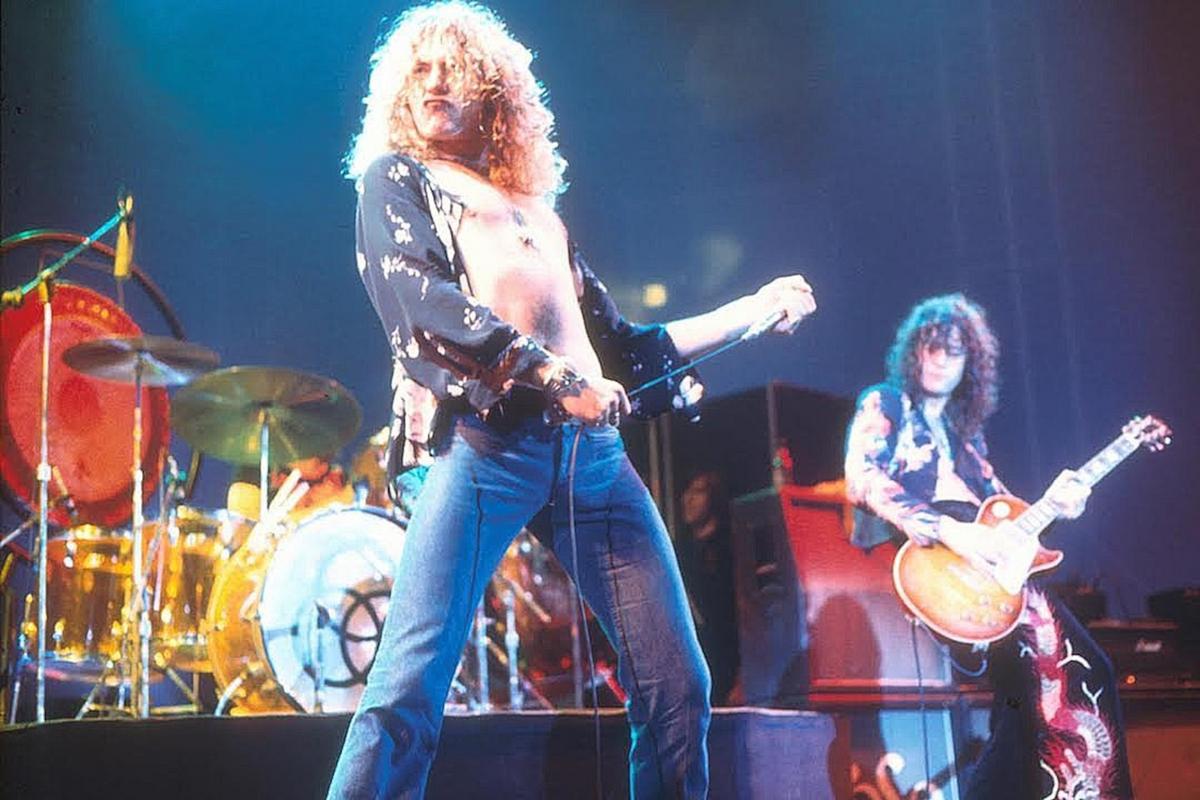On Dec. 4, 1980, Led Zeppelin called it quits. Less than three months earlier, the band’s drummer, John Bonham, was found dead at age 32 after a night of heavy drinking. The remaining members, together since they formed the band in London in 1968, saw no reason to continue without one of its founders.
Led Zeppelin was on the cusp of a music revolution since their first show together in November 1968, followed by the release of their self-titled debut album the following January. Initial inspiration came from other heavy groups of the era, including Cream and Yardbirds, the band Zeppelin directly sprung from. But by the release of their second album in October 1969, they were forging a path all their own.
For the next decade, Led Zeppelin changed popular music in ways that are still inspiring artists today. No band was bigger throughout the ’70s; from No. 1 albums to sold-out tours, they set the template for artists, in rock music and beyond, for generations to come.
Their records were impeccably produced
Jimmy Page started in the mid-’60s as a session guitarist on dozens of recordings. The experience taught him the value of the spaces between the music; listen to Led Zeppelin’s most ambitious multilayered tracks, and there are many to choose from, and you’ll discover an artist and band that cared about how their records sounded. Page gets plenty of credit as a guitarist; his skill as a producer is every bit as influential.
READ MORE: Every Led Zeppelin Song Ranked
They gave artists the upper hand in concert bookings
Before Led Zeppelin came along and became a huge concert draw, most artists were paid a standard booking fee from venues, with extra money coming from ticket sales and merchandise. Zeppelin’s ruthless manager Peter Grant charged venues to showcase his band, guaranteeing a set fee for artists plus a higher cut of merchandise and ticket sales. Since then, big-name artists have controlled their concert revenue.
peter grant photo
They didn’t care about singles
Even as albums became the art-form destination for serious musicians in the late ’60s, the single, the industry standard since recorded music was introduced at the turn of the century, was still the driving force to get an artist heard. Led Zeppelin changed all that, releasing just a handful of singles during their 10-year career, and all of them were pulled from their albums, their primary focus. Only “Whole Lotta Love” hit the Top 10.
They pretty much established the rock star lifestyle
Rock artists have always been flamboyant and prone to extravagant lifestyles. But Led Zeppelin took it to another level in the early ’70s, when only the Rolling Stones rivaled them in popularity and lavishness. They traveled via jet, looked like androgynous medieval gods and rarely interacted with the media, avoiding most promotional appearances and giving few interviews. They made rock stars larger than life.
Hulton Archive // Getty Images
They introduced a template still used by artists from all genres
From the start, Led Zeppelin sounded bigger than anyone else. John Bonham’s drums, Jimmy Page’s guitar and Robert Plant‘s howling wail took existing musical groundwork and transported them to thrilling new tiers of enormity during the height of their fame. From groundbreaking 1980s hip-hop artists to 2020s hard-rock copycats, Zeppelin’s riffs have been sampled and appropriated over generations and genres.
Ranking Every Led Zeppelin Live Album
It took a while, but they finally got things right.
Gallery Credit: Nick DeRiso
